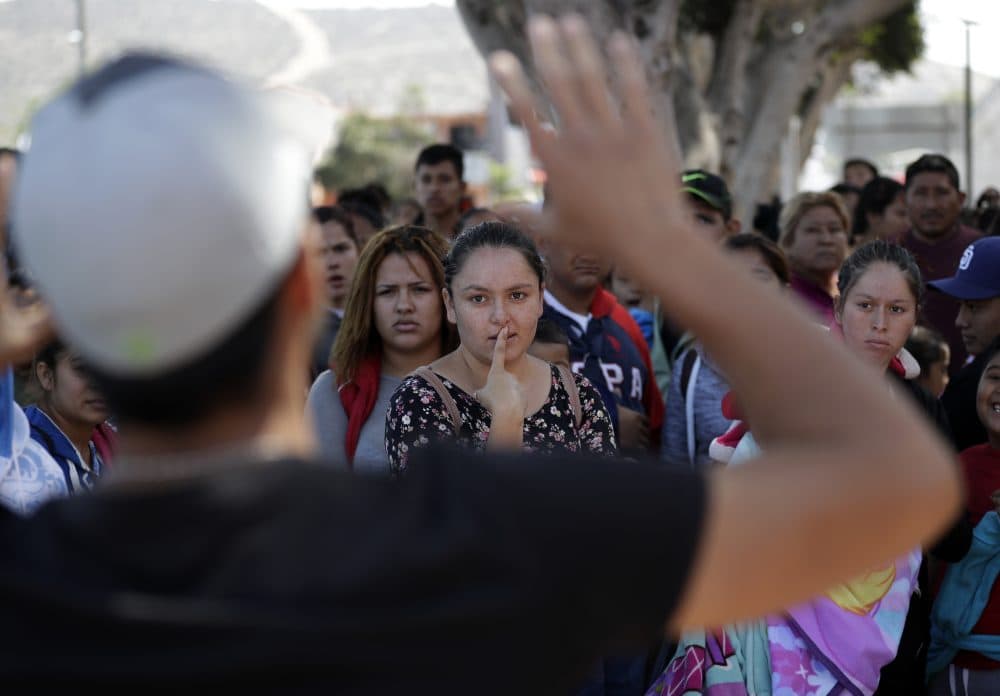Advertisement
Commentary
Sessions's Bleak Asylum Ruling Sends Us Back Decades

“Sandra,” a mother from Guatemala was physically and sexually abused by her husband for years. He punched her in the face, broke her tooth and raped her. Afterward, he threatened to kill her and locked her in his house for days. “Eva,” a young woman from Russia, was brutally beaten and raped by white supremacist skinheads because she was an ethnic minority. “Daniela,” at 5, witnessed the gruesome murder of her mother by gang members in El Salvador, after her mother reported gang activity to the police.
Sandra, Eva and Daniela all fled for their lives and sought asylum in the United States. Attorney General Jeff Sessions’s decision on June 11 directly threatens the lives of those like them.
We have provided legal representation and psychological evaluations for Sandra, Eva and Daniela, and scores of others seeking asylum and protection in the United States. The decision from Sessions threatens to eviscerate asylum protections for them, calling on asylum officers and judges to deny cases where victims have suffered "private violence" from people such as abusive husbands, skinheads or gang members.

Our experience, however, tells us that the Sandras, Evas and Danielas of the world are vulnerable refugees deserving of protection.
When we first met Sandra, her post-traumatic stress disorder was so pronounced that she was unable to discuss the years of violence she had endured. Eva had never told anyone about the horrific rapes she suffered and the deep shame she felt. Daniela still sleeps most nights in her sister’s bed, plagued by nightmares of masked gunmen shooting her mother a dozen times while she stood by.
Sessions’s decision suggests that these survivors do not deserve protection because they have suffered merely “personal, private conflict.” Federal courts first recognized that private acts — that is, harm by a non-government actor — could constitute persecution as far back as 1964. Since then, advocates have worked tirelessly to ensure that survivors of brutal domestic violence, gang violence and gender-based violence receive the protection that we are obligated to provide under both domestic and international law.
Sessions’s decision takes us back decades. Indeed, he explicitly instructs adjudicators, including asylum officers and immigration judges that, “[g]enerally, claims by aliens pertaining to domestic violence or gang violence perpetrated by non-governmental actors will not qualify for asylum.”
Sessions’s decision suggests that these survivors do not deserve protection ...
The vast majority of asylum seekers that we have worked with — including these women and children — suffer from major depression, PTSD and related mental illness as a result of the traumas they endured in their home countries. Forcing them to return to their countries of origin will worsen their psychiatric conditions, often dramatically so, and endanger their lives.
Through the legal representation and psychological evaluation of our respective programs, Sandra and Eva were granted asylum on the basis of the “private, personal conflict” they suffered at the hands of their abusers. Sandra is now a lawful permanent resident, working full time, and Eva recently enrolled in graduate school.
Given the life and death stakes faced by our clients and patients, Sessions's decision will be likened to the U.S. turning away boats filled with Jews escaping Nazi Germany. Indeed, Daniela’s case is still pending. On the heels of the attorney general’s callous and cruel decision, we fear for her life.

